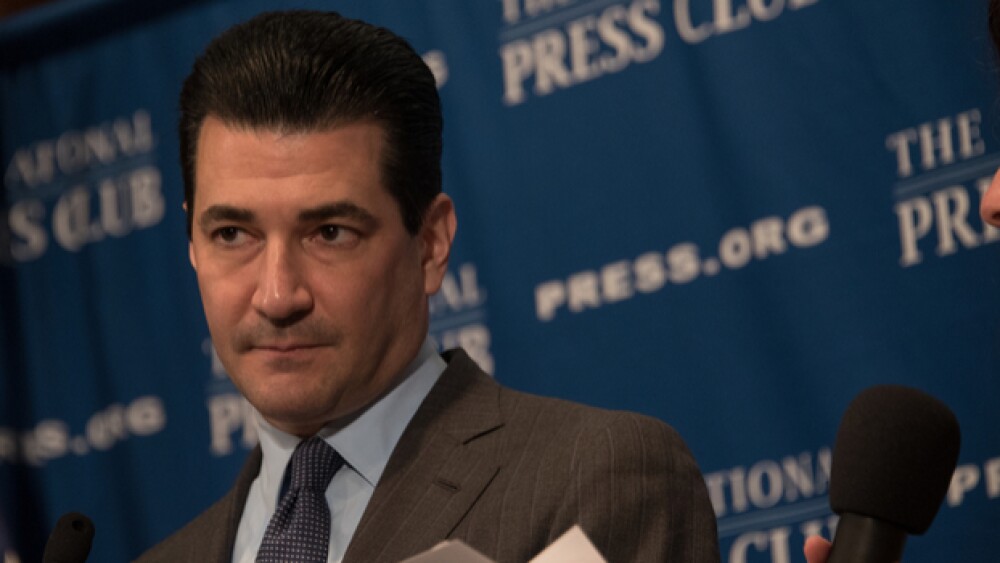On Face the Nation, Gottlieb said hospitalization rates in the United States for COVID-19 had been in a state of decline, but those numbers are now rising, which goes hand in hand with an increase in infection rates.
Albert H. Teich/Shutterstock
Scott Gottlieb, the former commissioner of the U.S. Food and Drug Administration, is urging U.S. residents to take precautions this autumn due to increasing COVID-19 infections across 30 states and the looming cold and flu season.
On Face the Nation, Gottlieb said hospitalization rates in the United States for COVID-19 had been in a state of decline, but those numbers are now rising, which goes hand in hand with an increase in infection rates.
“We were always facing heightened risk of increased spread of coronavirus as we headed into the fall and winter. Now we’re there. We’re starting to see that increase, and we’re taking a lot of infection into a very dangerous season for this virus,” Gottlieb said in his interview.
According to the Johns Hopkins COVID-19 dashboard, there are 7,115,008 diagnosed infections of COVID-19 in the United States. There have also been 204,756 deaths associated with the disease in the U.S.
For the rising numbers, Gottlieb noted that it’s unclear whether or not this is an upsurge in infection rates due to anti-maskers or mutations in the virus, or if it’s a “Labor Day bounce” from end-of-summer celebrations. He said it’s unclear whether or not infection rates will level off after a week or two, or if those numbers will continue to increase.
In addition to discussing the rising numbers of COVID-19 cases in the United States, Gottlieb also weighed in on a potentially more stringent guidance for Emergency Use Authorization for a vaccine in the United States. The FDA guidance would require vaccine manufacturers to follow participants participating in late-stage clinical trials for a median of at least two months, starting after they receive a second vaccine shot before EUA could be granted. The FDA reportedly drafted the guidance in order to improve national confidence in the regulatory agency and to also remove the vaccine as a potential political, pre-election tool. If that guidance comes to pass, it would delay potential EUA of a vaccine until the end of 2020 or early 2021 – well after the Nov. 3 election.
Pfizer and BioNTech have hinted that data from a Phase III study of its mRNA vaccine candidate could be available in October and Moderna, also developing an mRNA vaccine, has indicated November for a readout. Last week, President Donald Trump called the guidance a “political move” and implied during a press conference that the White House could attempt to overrule the new guidance.
Gottlieb, who helmed the FDA for two years, said the new guidance is not a “raising of the bar,” but an “articulation of the principles and standards that the FDA has been using for a long time.” Not only that, but these same standards are what the regulatory agency has been communicating to the companies developing vaccines, Gottlieb added.
“I would prefer they issue the guidance in the way they envision it because that would produce more transparency around the basis they’re using to judge these vaccines,” Gottlieb said. “Whether they release it or don’t, I think these are going to be the principles on which they govern the vaccine.”
Regarding efficacy of any vaccine ultimately put into use, Gottlieb said the expectation is the vaccine will be partially effective, similar to a flu vaccine.
“Maybe it will lessen the severity of COVID if they contract the infection, but it’s not going to provide what we call sterile immunity, which means you’re not going to be able to get infected with COVID. There will be some people who still get infected with COVID. That’s the expectation,” Gottlieb said during the interview.





